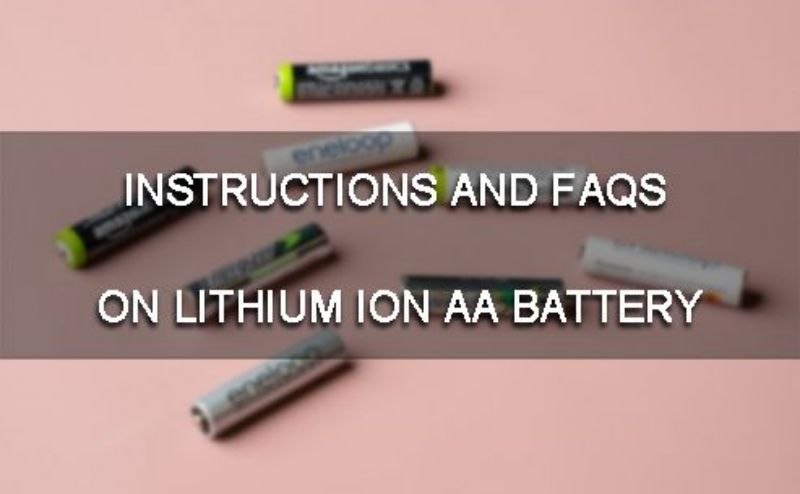
Main content:
- 1. What is the lithium-ion AA battery?
- 2. Can lithium-ion AA batteries be recharged? How many times can you charge a lithium AA battery?
- 3. Should lithium AA batteries be stored fully charged?
- 4. How long do AA lithium batteries last?
- 5. How can I make my lithium-ion AA battery last longer?
- 6. How do I know if my lithium-ion AA battery is damaged?
- 7. What is the longest-lasting AA battery?
- 8. Are lithium AA batteries better than alkaline?
- 9. Can you put a lithium-ion AA battery in anything? When should you use a lithium-ion AA battery?
1. What is the lithium-ion AA battery?
AA cell is one of the battery types, its general size is 14mm in diameter, 50mm in height. Because of its small size and moderate capacity, AA cell is widely used in many small electrical appliances and digital products. Most of AA batteries are disposable, but there are also AA batteries that can be recharged, and the lithium ion AA battery is one of them. AA batteries produce a voltage of 1.2V(Non-rechargeable) or 1.5V(rechargeable) per cell, and its battery capacity is up to 2700mAh.
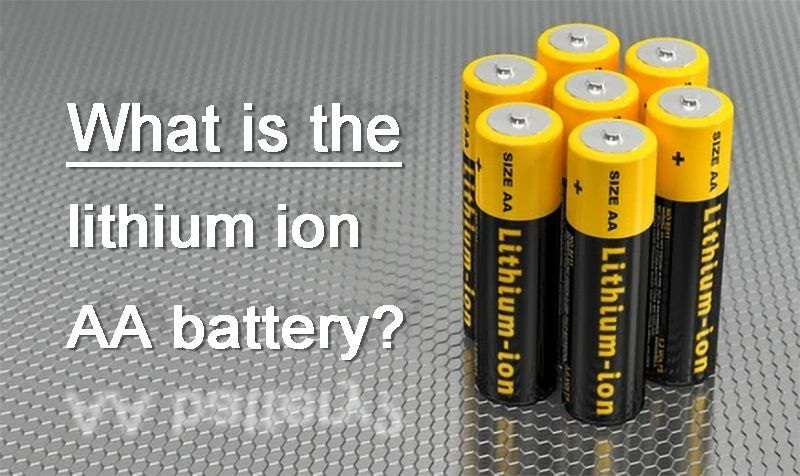
The lithium ion AA battery is a long-lasting rechargeable battery that uses ions that moves between anode and cathode during discharge and from cathode to anode during charging. Lithium-ion AA batteries use intercede lithium compounds and graphite in their anode and cathode. Lithium-ion AA batteries have higher energy density and lower self-discharge, which increase their performance, and they have more cycle times than the other batteries.
Compared to other batteries, lithium-ion AA batteries also allow for more power for important loads as well as their high-energy density also allows for a much larger range, so they have higher energy density and higher power carrying capacity. Although lithium ion AA battery is relatively expensive compared with other batteries, its daily cost is far lower than other batteries due to its long cycle life, slow decay and good continuous stability. With all this, lithium-ion AA batteries are long-lasting batteries that are light weight, high energy pack, and rechargeable.
2. Can lithium-ion AA batteries be recharged? How many times can you charge a lithium AA battery?
In fact, the majority of AA batteries are not rechargeable, while lithium-ion AA batteries can be recharged as they are long-lasting rechargeable batteries that can last 3 years if charged and discharged on average once a day(1000/365≈3). Lithium-ion AA batteries are lightweight batteries as they having high energy density. These ions then move from anode to cathode while discharging and cathode to anode while charging.
If these lithium-ion AA batteries are charged and discharged between 30% to 80% will make them more durable and last longer with better performance. Lithium-ion AA batteries tend to last up to 1000 cycles of charging and discharging if kept at a temperature between -20 to 60 degrees. As lithium ion AA battery uses lithium-ions for its energy packs, they move between the battery's terminals for charging and discharging.
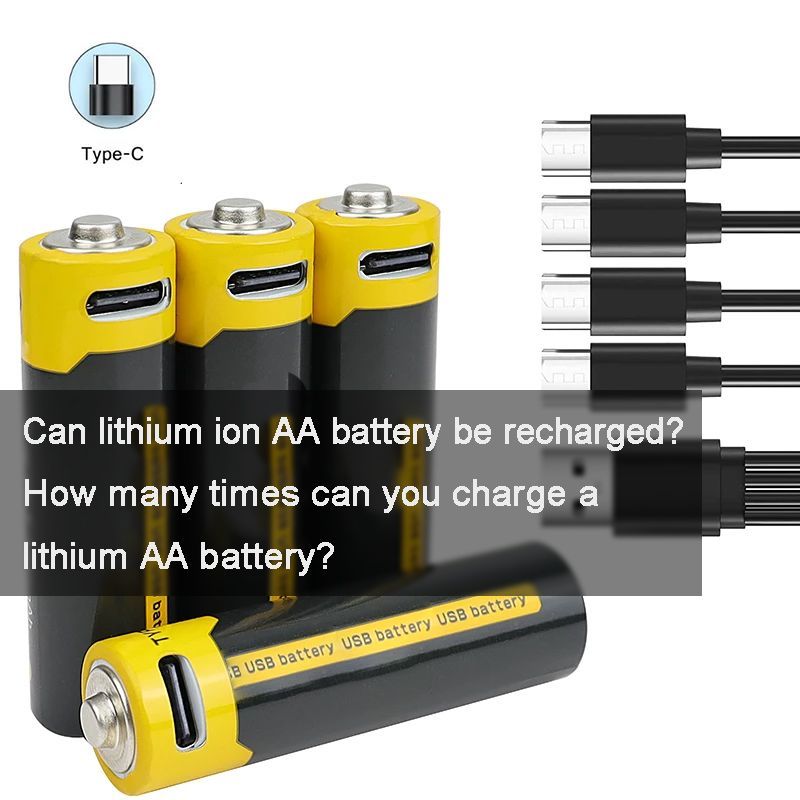
Still, in all this, the ions make a side reaction that reacts to the consumption of the balanced state of the battery and reduces its performance or capacity due to the responses of electrolyte decomposition, active substance dissolution, lithium metal deposition, etc., taking place in it. And these reactions can affect the charging capacity and fade the power within the battery, reducing the performance and breadth of the lithium-ion AA batteries.
3. Should lithium AA batteries be stored fully charged?
No, the lithium-ion AA battery should not be fully or highly charged for a long time without being used. This prolonged period will reduce the timing of the battery while not used and will eventually result in fading of the lithium ion AA battery's age, performance and capacity without being charged. Since lithium ion AA batteries have no memory effect, lithium-ion AA batteries should be charged fully or highly only when used instantly.
It is best to charge the lithium-ion AA battery between 30% to 80%, which makes them last longer with efficient performance. Therefore, the charger should be removed/unplugged when the lithium ion AA battery is fully charged. Keeping them plugged in even when fully charged will affect the battery state or long-lasting periods.
4. How long do AA lithium batteries last?
In theory, lithium ion AA battery can last forever because it consist of ion compounds which allow the battery to charge and discharge at their movement between two different electrodes and if these movement continues without and interruption the they can produce infinite energy. But in reality, within the setting and discharging period, there are reactions of electrolyte decomposition, active substance dissolution, lithium metal deposition, etc., within the battery.
At the same time, ions move back and forth between the two terminals of the batteries. These reactions fade lithium ion AA battery efficiency of time, power and capacity. And if lithium ion AA batteries are used in the operating temperature range of -20-to-60-degree then this battery cycle will up to 1,000 times before 80% DOD with their full efficiency. These batteries may last up to 3 years if they are charged and released once a day daily and with their total efficiency.
5. How can I make my lithium-ion AA battery last longer?
Lithium-ion AA batteries are long-lasting batteries, and taking proper care of them can make them durable and last even longer. Firstly, overcharging or overuse of the lithium ion AA battery can cause the battery to go bad within a short period. Keeping the lithium-ion AA battery fully or highly charged for long periods will accelerate their aging process and will make the batteries less durable. Maintaining the batteries between 30% to 80% will last longer.
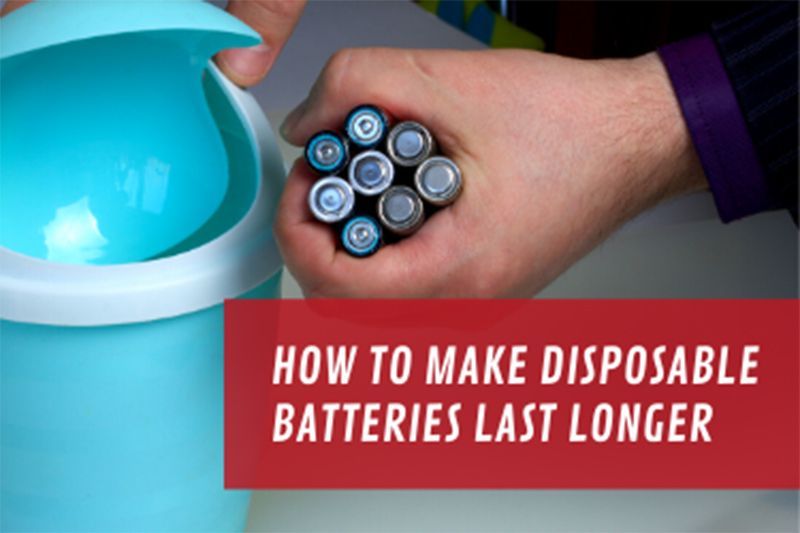
Lithium-ion AA batteries are capable of multiple short charging, resulting in a long-lasting healthy lithium ion AA battery. In addition, due to the internal resistance of lithium-ion AA battery itself, there is a certain self-discharge situation even in the case of static storage. With the increase of time, the internal capacity of lithium battery will be gradually consumed.
At room temperature, when the lithium ion AA battery is fully stored, the allowable self-consumption time is about 3 months. If the lithium-ion AA battery is not used for a long time, it must be charged about 40%-60% before storage. For the lithium-ion AA battery that is stored for more than 3 months, it is necessary to recharge regularly. It is recommended to recharge once every 3 months during storage to prevent the storage time from being too long, and the lithium-ion AA battery cannot be used normally due to the low power caused by self-discharge.
6. How do I know if my lithium-ion AA battery is damaged?
The conventional cycle times of lithium ion AA battery is 1,000 cycles. But everyone can't keep track of the number of times their batteries have been charged or discharged. A few others which indicate lithium-ion AA battery is damaged are listed below:
① Capacity reduces
If a lithium ion AA battery tends to discharge quickly compare to the normal charge rate, then it means you battery is damaged, which makes it discharge quickly because the battery have lost capacity.
② Low voltage
This is technical to know as for it, you would require a device to see what voltage a battery is providing you. If the voltage written on the lithium ion AA battery are lower than the shown/tested, then your battery is damaged.
③ Quick self-discharge
The battery discharges within less time and requires quick recharge means your battery is damaged, which makes the battery drain fast and results in charging again and again.
④ Overheating
If your lithium ion AA battery is overheating without overcharging or overuse, then it is undoubtedly an indication that your battery is damaged and needs to be taken care of(disposed battery safely).
⑤ Swelling
Swelling is a deformation of the battery from its original shape. And it is something which means the battery is damaged and no longer can be used as all the compound in it is roasted and cannot be used or trusted for any power supply. swelling batteries should be disposed of and replaced with a new one.
7. What is the longest-lasting AA battery?
Lithium iron phosphate is a long lasting battery that that has the highest cycle times of any battery or more and can work under -20 to 60 degrees. In theory, lithium iron phosphate can last forever if there isn't any reaction while the ion within lithium iron phosphate moves back and forth between two terminals.
8. Are lithium AA batteries better than alkaline?
Yes, lithium ion AA batteries are better than alkaline batteries. With the increasing demand for electricity, rechargeable batteries, especially lithium-ion batteries, have become the mainstream. Now the good old alkaline battery has been dethroned by the lithium battery. Lithium ion AA batteries have 1,000 cycles, while most alkaline batteries are not rechargeable.
As lithium ion AA batteries use lithium compound for the battery cells within which the ions move back and forth for the charging and discharging, which makes the battery last longer and are light weighted. Because of its high energy density, Lithium AA batteries are 23% lighter than alkaline batteries. These batteries have a longer life span than the alkaline battery because alkaline batteries use lead acid chemicals and they have low power density, making them pretty bulky and unfit for applications that require more power usage.
Lithium ion AA batteries are cost-efficient because they last longer than Alkaline batteries and are durable and rechargeable up to 1,000 cycles with total efficiency. Alkaline batteries, on the other hand, can only be charged 20 times at less than 0.1c, which is a different process from the charging process of a secondary battery. Under normal conditions, which is only a partial charge, also known as regenerative charging, which is different from the true charging of rechargeable batteries. They can only be charged at a partial discharge, and cannot be charged after being deeply discharged, as true rechargeable batteries do. The limitation of regenerative recharging and discharging and the short cycle life of alkaline batteries make it very uneconomical.
Besides, lithium ion AA batteries do not produce any toxic and harmful heavy metal elements and substances such as lead, mercury and cadmium, and do not contain highly toxic substances. They are relatively less polluted and have great recycling value, making them an eco-friendly option. But alkaline batteries contain zinc and manganese dioxide, which may be toxic at higher concentrations.
9. Can you put a lithium-ion AA battery in anything? When should you use a lithium-ion AA battery?
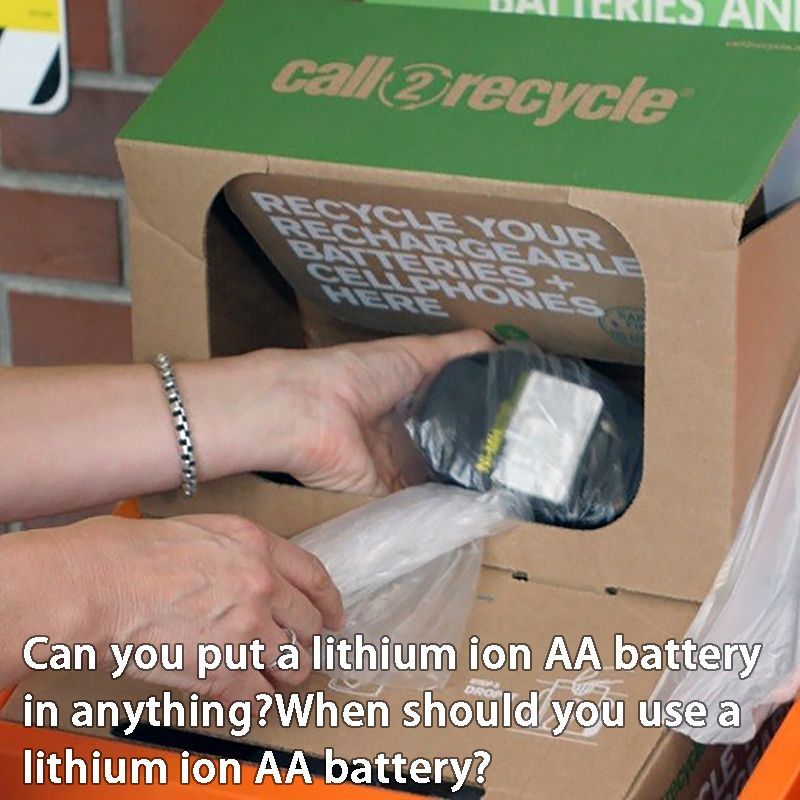
Lithium-ion AA batteries are now replacing alkaline batteries as they are more durable. They could be used in almost anything if the device required 1.5 volts, as the lithium ion AA battery produces 1.5 volts of power per cell. Lithium-ion AA batteries are rechargeable batteries and can last longer than alkaline batteries, so they are used in most devices. But they're limited to a temperature between -20 to 60 degrees. Over or below the temperature can result in damage, hazard or malfunction of the battery. Lithium-ion AA battery is a long lasting battery that can provide the same amount of voltage for more than 3 years if it is correctly cared for and charged and discharged on time. Now mainly in all AA units, lithium-ion AA batteries replace alkaline batteries.